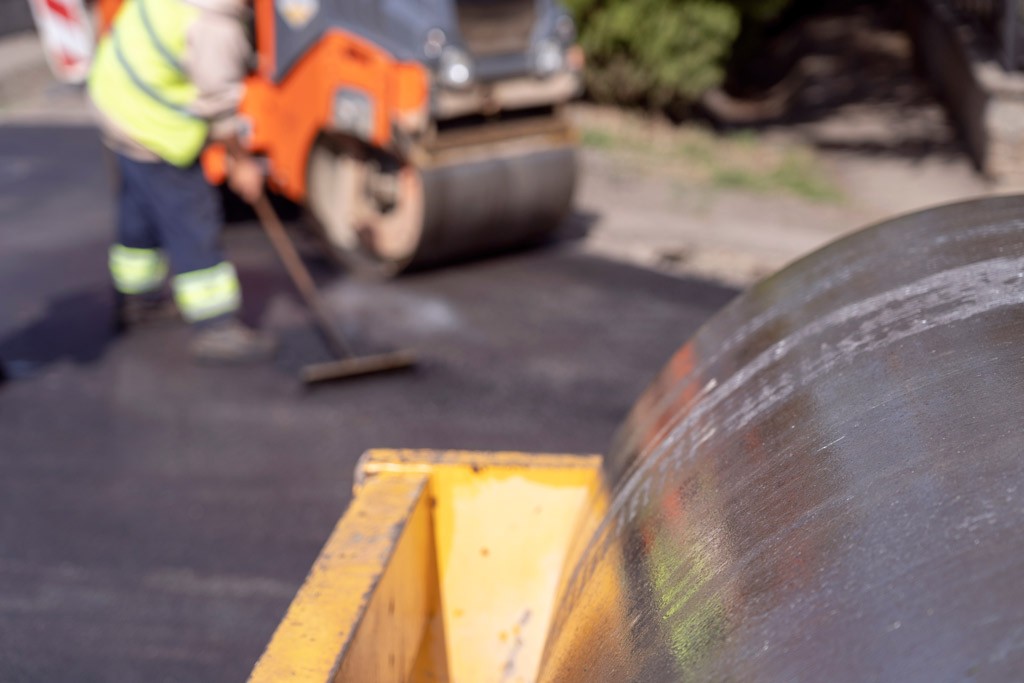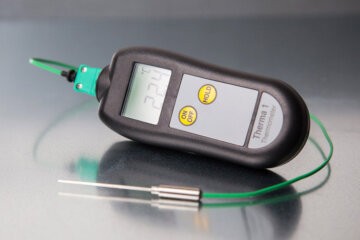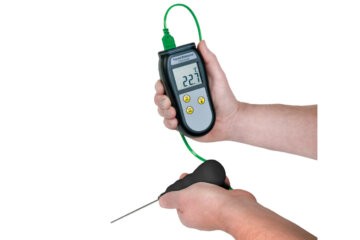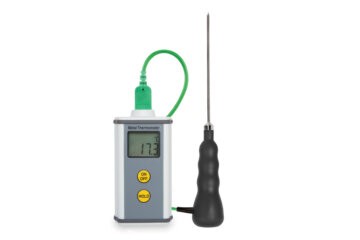Temperature Tips & Thermometers for Laying Asphalt

The final stages of surfacing a road involve laying a new layer of tarmac or asphalt. Then, smoothing and compacting the surface using a roller truck. The temperature of the mixture is critical for the final result to be smooth and long-lasting.
Read on to learn more about tarmac and asphalt laying temperatures and to find out which thermometers are best for monitoring this process.
What are tarmac and asphalt?
Tarmac and asphalt are materials used for surfacing roads, pavements and driveways. Tarmac, short for tarmacadam, is a mixture of crushed stone or aggregate and tar. Asphalt is now more commonly used as it has a smoother finish which is more durable and provides a better grip. It is made with a mixture of aggregates and bitumen.
Why is temperature critical to laying tarmac and asphalt?
At the optimum temperature, tarmac and asphalt are malleable substances that will lay smoothly and last a long time. If the tarmac or asphalt is too cold it will be stiff, brittle and prone to cracking.
The temperature of the mix on application depends on which mix is being used. This information should be provided by the material supplier. Once the product has been mixed, it is either transported to hot storage or straight to the working site ready to be applied while it is at the correct temperature.
What temperature can you lay tarmac or asphalt at?
As well as the tarmac or asphalt temperature, you also need to think about the temperature of the air and the ground where it is being laid. If the ground is extremely hot or cold, it will affect the quality of the final product and it will be more prone to cracks and potholes.
Tarmac or asphalt should be laid when the ambient temperature and ground temperature are at least 10 °C but below 30 °C. The ideal temperature is around 20 °C, and the ground should be dry as moisture can impact the final result. It’s important to make sure these conditions are maintained for a few days before and after application.
The ground temperature can vary dramatically from the ambient temperature, so you may want to use a surface probe or infrared thermometer to measure the temperature of the ground before starting.

Best thermometers for taking the temperature of tarmac and asphalt?
ETI offers a wide range of robust thermometers for industrial applications. We recommend using one of the following type K thermocouple thermometers with a T-Shaped Probe to take the temperature of tarmac and asphalt.
An infrared thermometer may also be useful for taking the surface temperature of the ground before laying the tarmac or asphalt. We wouldn’t recommend them for taking the temperature of the mixture, however. This is because they only offer surface readings, not core readings, so they would not be as accurate for this purpose.
Good option – Therma 1
The Therma 1 is an affordable and durable industrial thermometer, making it a popular choice for building professionals.
It comes supplied with a free traceable certificate of calibration, so you can have complete confidence in the accuracy of your checks. It also features a five-year battery life and a two-year guarantee. It’s compatible with a wide range of type K probes for different applications.

Better option – Therma Waterproof
The Therma Waterproof has all of the same great benefits of the Therma 1 thermometer, but with the addition of some useful features.
The casing offers IP66/67 waterproof protection, and it has an integrated rubber seal for additional durability. It also has a backlit display and max/min and hold functions, making temperature checks even easier to complete.

Best option – Therma K Metal
The Therma K Metal thermometer is as durable as it gets. The casing is made of durable aluminium and is waterproof to IP67, making it a great choice for tough environments.
Like the Therma 1 and Therma Waterproof thermometers, it features a five-year battery life and a two-year guarantee. It also comes with a free traceable certificate of calibration.

You might also like:
Tyre Temperatures: The Key to Motorsport Success
Infrared Thermometers: Accurate Readings & Limitations
Moisture Meters for Measuring Damp